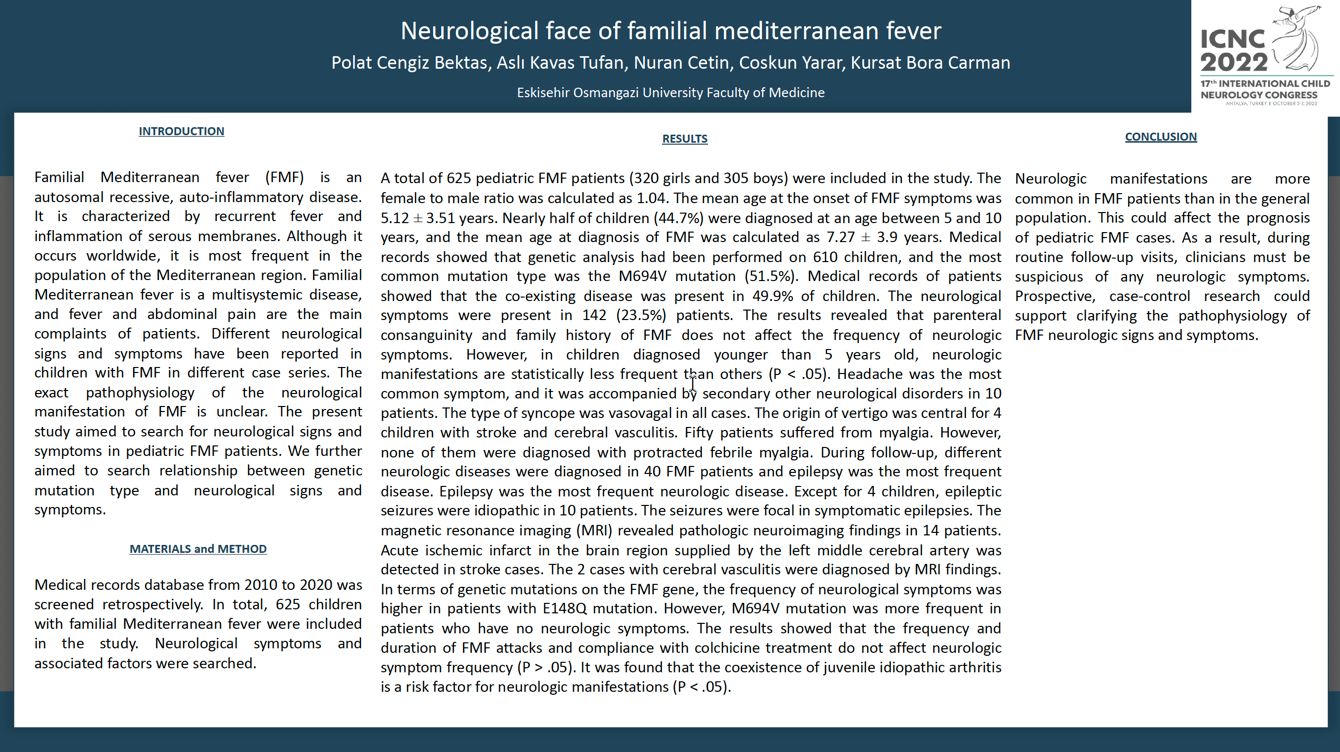Neurological face of familial mediterranean fever
Polat Cengiz Bektas, Asli Kavas Tufan, Nuran Cetin, Coskun Yarar, Kursat Bora Carman
Aim: Familial Mediterranean Fever (FMF) is a systemic inflammatory disease characterized by recurrent attacks in the form of fever and inflammation of serous membranes. We aimed to search for neurological signs and symptoms of children with FMF. Methods: Medical records database for 2010 to 2020 was screened retrospectively. In total, 625 children with FMF were included in the study. Neurological symptoms and associated factors searched. Results: The mean age at onset of FMF symptoms and time to diagnosis were calculated as 5.12 ± 3.51 years, 7.27 ± 3.9 years respectively. The neurological symptoms were present in 142 (23.5%) patients. Headache was the most common symptom. During follow-up, different neurologic diseases were diagnosed in 40 FMF patients and epilepsy was the most frequent disease. The coexistent disease was present in 49.9% of children with FMF. Juvenile idiopathic arthritis was found to be a risk factor for the neurologic symptom (p < 0.05). The frequency of neurological symptoms was higher in patients with E148Q mutation (p< 0.05). Conclusion: The results of the present study revealed that patients with FMF can present with various CNS manifestations. A multidisciplinary approach must be considered in the treatment of these children
Keywords: Familial Mediterranean Fever, children, brain, neurology
Polat Cengiz Bektas
Eskisehir Osmangazi University Faculty of Medicine
Turkey
Asli Kavas Tufan
Eskisehir Osmangazi University Faculty of Medicine
Turkey
Nuran Cetin
Eskisehir Osmangazi University Faculty of Medicine
Turkey
Coskun Yarar
Eskisehir Osmangazi University Faculty of Medicine
Kursat Bora Carman
Eskisehir Osmangazi University Faculty of Medicine
Turkey

Eskisehir Osmangazi University Faculty of Medicine Turkey